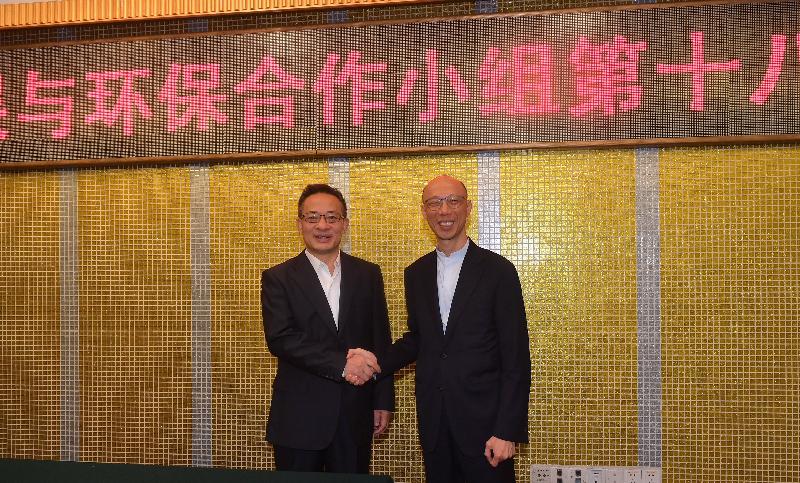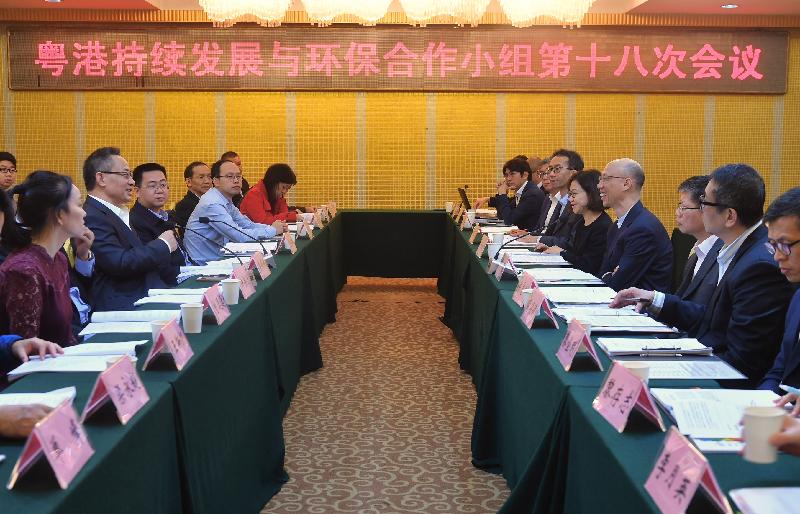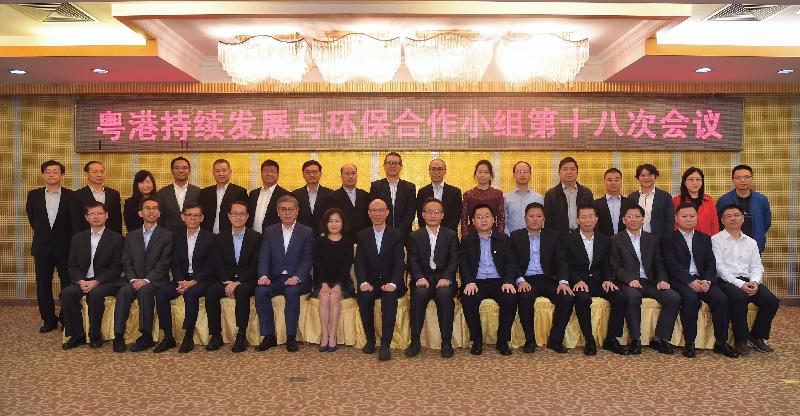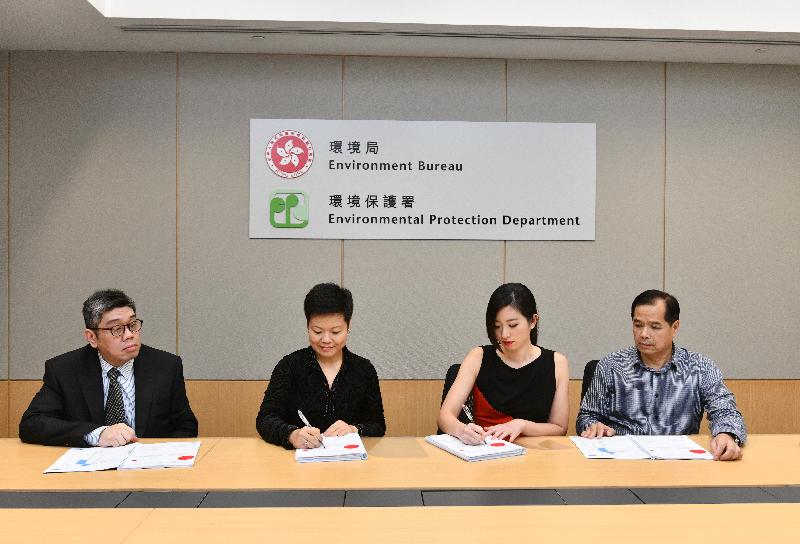18th meeting of Hong Kong-Guangdong Joint Working Group on Sustainable Development and Environmental Protection held in Guangzhou (with photos)
The Secretary for the Environment of the Government of the Hong Kong Special Administrative Region (HKSAR), Mr Wong Kam-sing, and the Director-General of the Department of Ecology and Environment of Guangdong Province (GDDEE), Mr Lu Xiulu, today (December 7) co-chaired the 18th meeting of the Hong Kong-Guangdong Joint Working Group on Sustainable Development and Environmental Protection (JWGSDEP) in Guangzhou. The meeting reviewed the 2018 progress of environmental collaboration between the two sides. Both sides agreed that the implementation of the Guangdong-Hong Kong-Macao Greater Bay Area as a national strategy has provided new opportunities for Hong Kong-Guangdong environmental co-operation. The JWGSDEP also agreed on a work plan for 2019.
Reviewing the work of the past year, the JWGSDEP noted that there had been smooth progress in environmental work on various fronts including improving the air quality in the Pearl River Delta (PRD) region and protecting the water environment, as well as enhancing co-operation in forestry and marine resources conservation (as detailed in Annex 1).
On improving air quality, under the PRD Regional Air Quality Management Plan, Hong Kong and Guangdong are implementing various measures and monitoring their progress and effectiveness in meeting the emission reduction targets for 2020. Both sides agreed to include the monitoring of volatile organic compounds (VOCs) in the PRD Regional Air Quality Monitoring Network and have started the preparatory work. Hong Kong and Guangdong also agreed to establish a joint scientific research group and launch a study on post-2020 regional air pollutant emission reduction targets and concentration levels (the Study), as well as to enhance collaboration on air quality forecasting work.
On the management of the marine environment, Hong Kong launched a trial of the notification and alert system on marine refuse in May 2017. A computer system is employed to monitor the rainfall data for Hong Kong and 13 cities of Guangdong Province in the Pearl River catchment so as to issue alerts on potentially massive amounts of marine refuse in regional waters and notify the relevant departments to take follow-up actions accordingly. Since the start of the notification mechanism, it has been activated 15 times with notifications issued in response to heavy rainfall, flooding and other major environmental incidents. Both sides will continue to enhance communication and co-operation in tackling major cross-boundary marine environmental incidents.
The JWGSDEP also endorsed the work plan for 2019 (as detailed in Annex 2) and agreed to prioritise ecological and environmental protection in the development of the Guangdong-Hong Kong-Macao Greater Bay Area, and will continue to further collaborate in environmental protection and environmental management.
In addition to formulating the post-2020 regional air pollutant emission measures and targets, and predicting the air quality levels through the Study, Hong Kong and Guangdong will include VOCs in their routine monitoring to step up regional ozone control. Both sides will strengthen collaboration on air quality forecasting for improving the forecasting capability of the PRD region. Both sides will also jointly explore measures to tackle marine refuse and manage marine environmental incidents.
Regarding the ecological environment, Hong Kong and Guangdong will foster exchanges and enhance collaboration in the development, management, conservation, staff training, publicity and education of nature reserves including forests and wetlands. The work plan also includes co-operation on aspects such as PRD water quality protection, regional environmental management of Mirs Bay and Deep Bay (Shenzhen Bay), as well as Dongjiang water quality protection.
Officials of the HKSAR Government attending today's meeting included representatives of the Environment Bureau, the Development Bureau, the Environmental Protection Department, the Water Supplies Department and the Agriculture, Fisheries and Conservation Department. Officials of the Guangdong side included representatives of the GDDEE, the Development and Reform Commission of Guangdong Province, the Department of Housing and Urban-Rural Development of Guangdong Province, the Department of Agriculture and Rural Affairs of Guangdong Province, the Water Resources Department of Guangdong Province, the Forestry Bureau of Guangdong Province, the Guangdong Meteorological Bureau, the Hong Kong and Macao Affairs Office of Guangdong Province, the Guangdong Maritime Safety Administration, the Human Settlements and Environment Commission of Shenzhen Municipality, and the Zhuhai Environmental Protection Bureau. The JWGSDEP mainly discusses and exchanges views on matters relating to environmental quality, natural resources, ecological environment and sustainable development of the two sides. Seven special panels have been set up under the JWGSDEP to take forward the implementation of the various co-operation initiatives.




